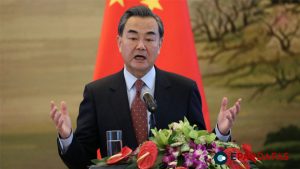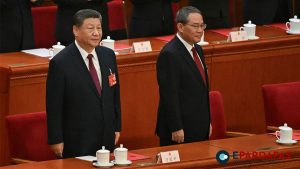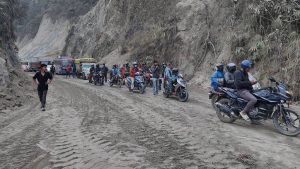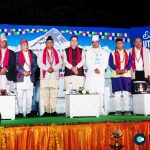
Chinese and Bangladeshi Nationals Illegally Acquiring Nepali Citizenship Raises Security Concerns

Reports from the Nepal Police have shed light on an alarming trend of foreign nationals, particularly Chinese and Bangladeshi individuals, illegally acquiring Nepali citizenship. This concerning issue, fueled by alleged corruption among local officials, poses significant challenges to Nepal’s social, economic, and national security.
Nepal Police sources indicate that Chinese nationals are involved in bribing officials to obtain Nepali citizenship. These Chinese individuals reportedly engage in various illicit businesses across Nepal, including gold smuggling, cybercrime, human trafficking, and narcotics trading. In recent cases, authorities uncovered complex operations orchestrated by Chinese criminal networks, revealing well-hidden syndicate bases in prominent locations throughout Kathmandu, including high-security zones like Baluwatar and Thamel. These bases served as hubs for processing smuggled gold and conducting other illicit activities under the guise of legitimate business ventures.
In a shocking development, police apprehended a section officer, Ram Chandra Aryal, who allegedly provided Nepali citizenship to two Chinese nationals now under investigation for gold smuggling. Aryal, currently facing legal action, was accused of registering these foreign nationals as Nepali citizens using false identities. The recent exposure of this citizenship manipulation scandal highlights systemic corruption in the Kavre District Administration Office, where around 350 individuals, including foreign nationals, have reportedly gained citizenship through fraudulent means.
Involvement of Bangladeshi Nationals in Illegal Immigration
Nepal has also seen an increase in illegal immigration by Bangladeshi nationals, facilitated by some local Islamic organizations. Authorities report that Muslim groups, including the Islamic Sangh Nepal, assist Bangladeshi immigrants with logistics, housing, and ultimately, citizenship acquisition, which enables them to open bank accounts and seek employment. Concerns over the demographic impact of these practices are particularly pressing in the Tarai and Madhes regions, where officials fear illegal immigration could lead to increased radicalization and disruption of the region’s communal harmony.
The Islamic Sangh Nepal and local Muslim organizations have reportedly compiled lists of Bangladeshi immigrants and, in coordination with the Nepal Muslim Commission, verified them as family members of previously registered citizens. These actions facilitate citizenship issuance, allowing these individuals to evade legal scrutiny. Experts suggest that these efforts align with a broader demographic agenda driven by foreign groups like Jamaat-e-Islami Pakistan, aimed at altering Nepal’s population balance in strategically sensitive areas.
Rising Concerns with Rohingya Refugees
Since 2017, Nepal has experienced a steady influx of Rohingya refugees fleeing persecution in Myanmar. Currently, around 800 Rohingyas reside in Nepal, with over 370 receiving identity cards from the United Nations High Commissioner for Refugees (UNHCR). Although Nepal allows the Rohingya population to live in group settings, mostly around Kathmandu’s outskirts, this has sparked additional concerns about the socio-political implications of a rapidly growing refugee community.
Security agencies are increasingly vigilant over these developments, fearing that unchecked illegal immigration could undermine Nepal’s demographic stability. Law enforcement officials emphasize the need for stringent border security, particularly in eastern border regions like Kakarbhitta, where the influx of Bangladeshi and Rohingya refugees is concentrated.

Crackdown on Chinese Criminal Networks
Nepalese authorities have intensified efforts to address the operations of Chinese criminal syndicates in the country. Following the July seizure of a significant gold cache, an investigation led by the Revenue Investigation Department uncovered clandestine bases run by Chinese nationals in several high-security districts within Kathmandu. These operatives, including figures like Dawa Chiring, a key suspect in the gold smuggling case, are alleged to be part of a broader network involving corrupt officials and local enablers.
Chiring, identified as a Belgian citizen of Tibetan descent and now infamously labeled the “Chinese mafia,” is alleged to have introduced Chinese criminal networks to Nepal. His citizenship, fraudulently obtained using the alias “Nima Tamang,” was recently revoked by the Nepali government. Chiring’s arrest in connection with the smuggling operation also exposed collusion within Nepal’s administrative offices, where officials reportedly facilitated citizenship for foreign nationals in exchange for financial incentives.
This scandal has prompted a sweeping review of citizenship records in Kavre District, where authorities recently rescinded 16 citizenships obtained through fabricated information. Investigators are working to identify accomplices, including high-ranking officials, believed to have abused their positions to aid foreign nationals in securing citizenship.
Political Implications and National Security Threats
As Nepal grapples with these intertwined issues of citizenship fraud, illegal immigration, and organized crime, the country’s law enforcement agencies emphasize the need for international collaboration to counter these cross-border challenges. Affected communities and national security experts alike are concerned that these developments may compromise Nepal’s internal stability, economic health, and political integrity.
Senior officials call for strengthened border controls, enhanced intelligence operations, and a comprehensive strategy to address these emerging threats. The government’s recent efforts to revoke fraudulently obtained citizenships, while significant, underscore the complexities and far-reaching implications of unregulated foreign influence within Nepal’s borders.
Read More Article:












Comments